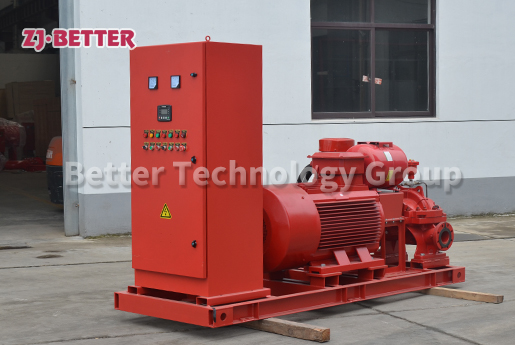-
 Feb 05, 2025How to Minimize Wear and Tear on Your Fire Pump?Extend your fire pump’s lifespan with proper maintenance, lubrication, and testing. Learn key tips to minimize wear and tear on your fire pump system.View details
Feb 05, 2025How to Minimize Wear and Tear on Your Fire Pump?Extend your fire pump’s lifespan with proper maintenance, lubrication, and testing. Learn key tips to minimize wear and tear on your fire pump system.View details -
 Jan 24, 2025Why Investing in High-Quality Fire Pumps Saves Money Long-Term?Invest in high-quality fire pumps for reliable fire safety. Discover how durable systems reduce maintenance costs and save money in the long term.View details
Jan 24, 2025Why Investing in High-Quality Fire Pumps Saves Money Long-Term?Invest in high-quality fire pumps for reliable fire safety. Discover how durable systems reduce maintenance costs and save money in the long term.View details -
 Jan 23, 2025Why Investing in High-Quality Fire Pumps Saves Money Long-Term?Invest in high-quality fire pumps for reliable fire safety. Discover how durable systems reduce maintenance costs and save money in the long term.View details
Jan 23, 2025Why Investing in High-Quality Fire Pumps Saves Money Long-Term?Invest in high-quality fire pumps for reliable fire safety. Discover how durable systems reduce maintenance costs and save money in the long term.View details -
.jpg) Jan 21, 2025Why NFPA 20 Compliance Matters for Your Fire Pump System?Discover why NFPA 20 compliance is crucial for fire pump systems. Ensure reliability, safety, and adherence to fire protection standards with expert insights.View details
Jan 21, 2025Why NFPA 20 Compliance Matters for Your Fire Pump System?Discover why NFPA 20 compliance is crucial for fire pump systems. Ensure reliability, safety, and adherence to fire protection standards with expert insights.View details -
 Jan 20, 2025Why Fire Pumps Fail and How to Prevent ItDiscover the common causes of fire pump failures and practical prevention tips. Learn how to ensure reliability and compliance in fire protection systems.View details
Jan 20, 2025Why Fire Pumps Fail and How to Prevent ItDiscover the common causes of fire pump failures and practical prevention tips. Learn how to ensure reliability and compliance in fire protection systems.View details -
.jpg) Jan 19, 2025Why NFPA 20 Compliance Matters for Your Fire Pump System?Learn why NFPA 20 compliance ensures fire pump system safety, reliability, and efficiency. Discover its role in meeting fire protection standards.
Jan 19, 2025Why NFPA 20 Compliance Matters for Your Fire Pump System?Learn why NFPA 20 compliance ensures fire pump system safety, reliability, and efficiency. Discover its role in meeting fire protection standards.
View details

.png)
.png)

.png)


